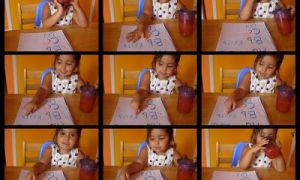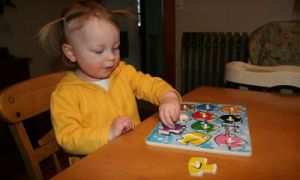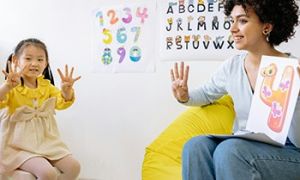

The Developmental Milestones Checklist EYLF 1 to 2 Years enables Educators to link each of the milestones within the developmental domains to the EYLF Outcomes.
When educators teach intentionally, they are deliberate, purposeful and thoughtful in their decisions and action. Intentionality can be used to create learning environments, plan learning interactions and also document children’s learning. The following article provides information on Intentional Environments, Intentional Interactions, Intentional Strategies and more.
Critical reflection has been explained in the EYLF as reflective practices that focus on implications for equity and social justice. In the context of childcare, it involves examining and analysing events, experiences and practices from a range of perspectives to inform future planning and decision-making. The following article provides information on Engaging In Critical Reflections, Questions For Critical Reflections, Practicing Critical Reflections and more.
Experiences in early childhood settings build on the range of experiences with language, literacy and numeracy that children have within their families and communities. The following article provides activities to promote each of the sub-outcomes of EYLF Outcome 5 - Children Are Effective Communicators.
Children are more likely to be confident and involved learners when their family and community experiences and understandings are recognised and included in the early childhood setting. The following article provides activities to promote each of the sub-outcomes of EYLF Outcome 4 - Children Are Confident And Involved Learners.
A strong sense of well-being provides children with confidence and optimism which maximises their learning potential. It encourages the development of children’s innate exploratory drive, a sense of agency and a desire to interact with others. Well-being includes good physical health, feelings of happiness, satisfaction and successful social functioning. It influences the way children interact in their environments. The following article provides activities to promote each of the sub outcomes of EYLF Outcome 3 - Children Have A Strong Sense of Wellbeing.
When children move into early childhood settings they broaden their experiences as participants in different relationships and communities. When educators create environments in which children experience mutually enjoyable, caring and respectful relationships with people and the environment, children respond accordingly. The following article provides activities to promote each of the sub outcomes of EYLF Outcome 2: Children Are Connected With And Contribute To Their World.
When children feel safe, secure and supported they grow in confidence to explore and learn. In early childhood settings children develop a sense of belonging when they feel accepted, develop attachments and trust those that care for them. As children are developing their sense of identity, they explore different aspects of it (physical, social, emotional, spiritual, and cognitive), through their play and their relationships. The following article provides activities to promote each of the sub outcomes of EYLF Outcome 1: Children Have A Strong Sense Of Identity.
The Early Years Learning Framework outlines a set of eight pedagogical practices for educators to draw upon to promote children’s learning. These practices range from macro aspects like building relationships and curriculum decision-making to daily interventions like teaching and learning. The following article provides information on each of the 8 Practices and examples of how to implement the eylf practices into your service.
The Early Years Learning Framework outlines five principles that reflect contemporary theories and research evidence concerning children’s learning and early childhood pedagogy. These principles are meant to underpin practice so that all children are supported to make progress in relation to the Learning Outcomes. The following article provides information on each of the 5 Principles and examples of strategies of how to implement the eylf principles into your service.
 Toddlers have a greater understanding of the world around them by this stage. Their cognitive development (also known as intellectual development and thinking skills) continues… Read More
Toddlers have a greater understanding of the world around them by this stage. Their cognitive development (also known as intellectual development and thinking skills) continues… Read More
 Infants begin to develop trust when parents begin to fulfil their needs. Such as changing an infant's nappy when needed, feeding on request and holding… Read More
Infants begin to develop trust when parents begin to fulfil their needs. Such as changing an infant's nappy when needed, feeding on request and holding… Read More
 Beginning at birth the construction of thought processes, such as memory, problem solving, exploration of objects etc, is an important part of an infant’s cognitive… Read More
Beginning at birth the construction of thought processes, such as memory, problem solving, exploration of objects etc, is an important part of an infant’s cognitive… Read More
 Toddlers want to do more on their own and do not like it when you begin to establish limits on their behaviour. Tantrums can become… Read More
Toddlers want to do more on their own and do not like it when you begin to establish limits on their behaviour. Tantrums can become… Read More
 Your preschooler is now able to focus their attention more accurately and is less influenced by distractions. The intensity of questions increase as your child… Read More
Your preschooler is now able to focus their attention more accurately and is less influenced by distractions. The intensity of questions increase as your child… Read More
 John Dewey is often seen as the proponent of learning by doing – rather than learning by passively receiving. He believed that each child was active,… Read More
John Dewey is often seen as the proponent of learning by doing – rather than learning by passively receiving. He believed that each child was active,… Read More
 Toddler advance and gains new skills in Gross Motor Development milestones achieved throughout earlier years. Co-ordination and challenges that could not be performed before such… Read More
Toddler advance and gains new skills in Gross Motor Development milestones achieved throughout earlier years. Co-ordination and challenges that could not be performed before such… Read More
 Erik Erikson developed a psychosocial theory to understand how we each develop our identities through eight stages of psychosocial development from infancy to adulthood. The… Read More
Erik Erikson developed a psychosocial theory to understand how we each develop our identities through eight stages of psychosocial development from infancy to adulthood. The… Read More
 At this point preschoolers begin to interact effectively with others. Play becomes more innovative and organized and “boyfriend” or “girlfriend” begins to emerge. Preschoolers have… Read More
At this point preschoolers begin to interact effectively with others. Play becomes more innovative and organized and “boyfriend” or “girlfriend” begins to emerge. Preschoolers have… Read More
 From now, babies begin to identify and respond to their own feelings, understanding other's feelings & needs and interact positively with others. A baby's social and… Read More
From now, babies begin to identify and respond to their own feelings, understanding other's feelings & needs and interact positively with others. A baby's social and… Read More

Your preschooler is now able to focus their attention more accurately and is less influenced...
See more...
Toddlers have a greater understanding of the world around them by this stage. Their cognitive...
See more...
Preparing children for the leap into formal schooling involves more than academic knowledge—it means supporting...
See more...© 2009-2025 Aussie Childcare Network Pty Ltd. All Rights Reserved.

